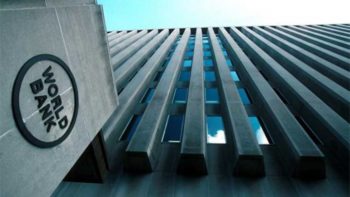
Nine states in the country would participate in a new World Bank supported $200 million agricultural programme, an official said in Kaduna on Wednesday.
The programme, tagged Agriculture Productivity Processing Enhancement and Livelihood Scheme Project (APPEALS), will focus on food security, local production, job creation and economic diversification.
The bank’s Task Team Leader, Dr Sheu Salau, made the disclosure on the side line of a two-day Wrap-up meeting on Commercial Agriculture Development Project (CADP).
The team leader said 40 per cent of the amount would go to projects to support youth and women in the participating states.
He said that Kano, Kaduna, Lagos, Cross River, Kogi and Enugu have been selected to participate in the programme while the remaining three states would be announced after fulfilling set conditions.
Salau said the successful implementation of the CADP programme informed the approval for the new project.
The World Bank in March, 2017 approved the $200 million credit to support the Federal Government in enhancing agricultural productivity of small and medium scale farmers.
“The project supports the country policy thrusts on food security, local production, job creation and economic diversification.
“It responds to the recurring issues of low productivity, limited farmers’ participation to agribusiness supply chains, and institutional realignment in the agricultural sector. “
According to the bank, the project will help increase agricultural productivity and production.
It would also improve processing and marketing, foster job creation, and increase household income and livelihood in participating states.
It added that the new project would benefit women and youth businesses such as horticulture, poultry and aquaculture.
“The project will tackle the key constraints of the Nigeria agriculture sector, such as low productivity, lack of seed funds for establishing agro-processing plants, lack of access to supportive infrastructure, and low level of technology adoption and limited access to markets.
“Priority value chains under the project will include products with potential for immediate improvement of food security, products with a potential for export and foreign currency earnings (Cocoa and Cashew) and enhancement of the national production of crops including rice, maize, cassava and wheat.
“The number of project’s direct beneficiaries is 60,000 individuals, 35 percent of which will be women.
“Overall, about 300,000 farm household members are indirect beneficiaries,” the bank said.
On the CADP, Salau said 82 per cent of the funds had been released to the beneficiaries and disbursement of the balance would continue even after May 31, when the project would wind up.
He said so far, more than 3,000 youth and women had benefited from the project in various food supply value chain programmes in the five states that participated.